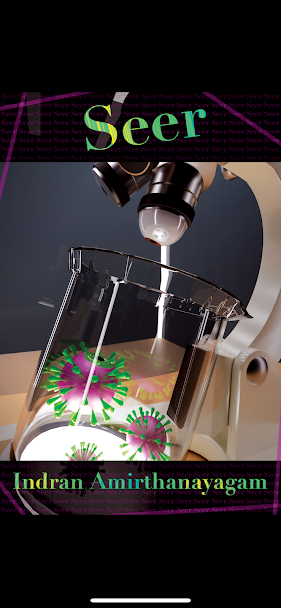This poem was written by manually copying out every eight words in Jeffery Schwartz’s OCD self-help classic Brain Lock: Free Yourself from Obsessive-Compulsive Behaviour. From this list, I only eliminated words and lineated phrasings, without adding words or changing order of appearance in the original text. Originally published in 1996, Brain Lock: Free Yourself from Obsessive-Compulsive Behaviour is the first, and still one of the best-selling, books for self-treatment and public understanding of Obsessive-Compulsive Disorder. The book utilizes a bio-medical approach that relies on now largely discredited theory of biochemical imbalance and describes obsessive-compulsiveness as a “disease” and a “tenacious enemy.”
This paragraph begins the afterword of my above/ground chapbook, And Absurd Cycle. The poem (an excerpt from a longer work) operates as a highly constrained exploration of the subject matter of obsessive-compulsiveness by one with lived experience. The rules were important for writing this poem, and I didn’t want to give myself much leeway to shift meanings. The constraint was the message. The constraint, too, was a reading strategy of imprinting lived experience into a text.
This poem operates as a poetic manifestation of my obsessive-compulsive checking sets of eight times in order to avert logical and illogical potential harms.
In moments of heightened anxiety, I check the oven burners by eights, check in on my pets to make sure they’re still alive and count to eight, I check the door’s locked eight times. After this though, doubts and fears remain. It’s not rare for me to return home (if there is time to return) or worry to the point of complete distraction (if there isn’t time to return).
In writing this poem, I applied obsessive-checking as a text selection strategy. Through application of a pathologized routine as a writing strategy, the poem draws out a text of multilayered meditation on obsessive-compulsiveness. With the language drawn from an early and primary OCD self-help source, the content of the poem is constrained by a program meant to eradicate the experience. Yet, with an application of an obsessive-compulsive process to this text, the form speaks back to the content and moments of a conflicted subjectivity emerge.
Obsessive-compulsive experience is clinically described as “ego-dystonic.” This means that in an experience one has a doubled sense of self – both the self that enacts anxieties and/or routines, but also a sense of self that understands these to be irrational or counter to one’s wants and sense of self. Rather than providing relief, the ego-dystonic experience actually heightens fear, anxiety, and a loss of autonomy as one feels unable to match thoughts and behaviours with one’s self-aligned sense of reason. The tension in this poem, between form and content, at times becomes contradictory and conflicted, but also creates surprising moments of intersection and resonance.
This poem is an example in what I have elsewhere described as obsessive-compulsive oulipo.
Although poetics and debilitating anxiety are quite different, their form has strong overlaps that become obvious when moving between these areas of experience. The obsessive-compulsive’s life is a constrained experiment in (seemingly) arbitrary rules.
This poem embraces the mad, insane, crazy organization of a life.
To intensely focus on text selection might itself be pathological.
This poem is an exercise in the paradoxical imprecision of intense focus.
One of the cruel paradoxes of obsessive-compulsiveness is that intense focus and repeated checking actually cognitively limit one’s memory and perception. Counting eights, manually through the text, I am sure was similarly imprecise. This obsessive-compulsive imprecision too becomes part of the text’s creation.
Leaning into a compulsive routine is maddening.
This poem asks what becomes of the rejection of the narrative of cure.
I’ll end with a quote I return to often, by Abby Sher, which I found quoted by Claire Ross Dunn: “I would say … to whomever needs to do all these things … thank you for keeping your hands washed, and for counting the cracks in the sidewalk, and for making sure the lights are off and the oven is off and the plugs are unplugged and the door is locked. And your work is done.”
Drew McEwan is the author of the poetry collections Repeater, If Pressed, and Tours, Variously (forthcoming, 2025). She has also published numerous literary chapbooks including Conditional, Can't tell if this book is depressing or if I'm just sad, Theory of Rooms, and Recoveringly. She works as an educator and researcher at the University at Buffalo.




%20(1).jpg)



